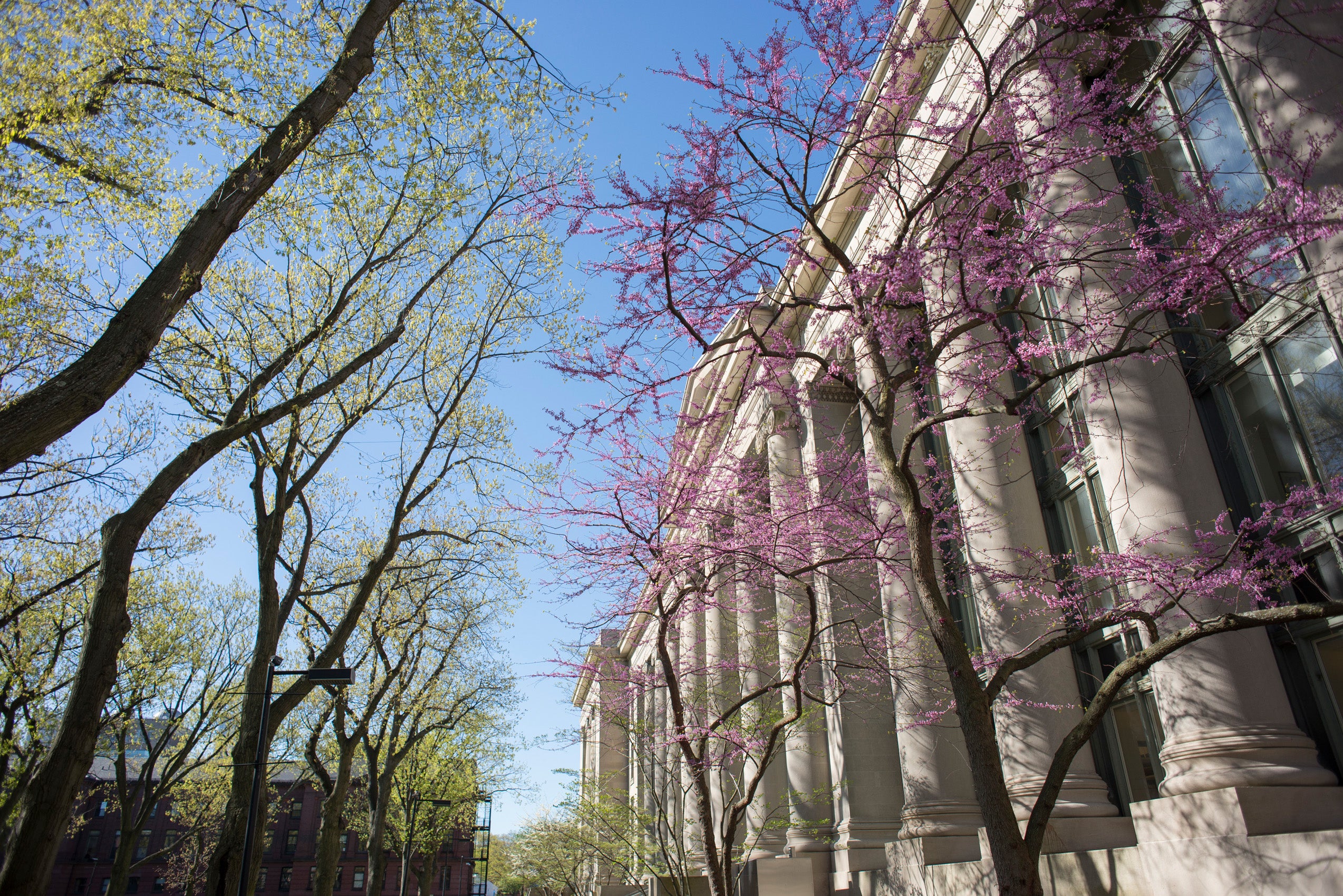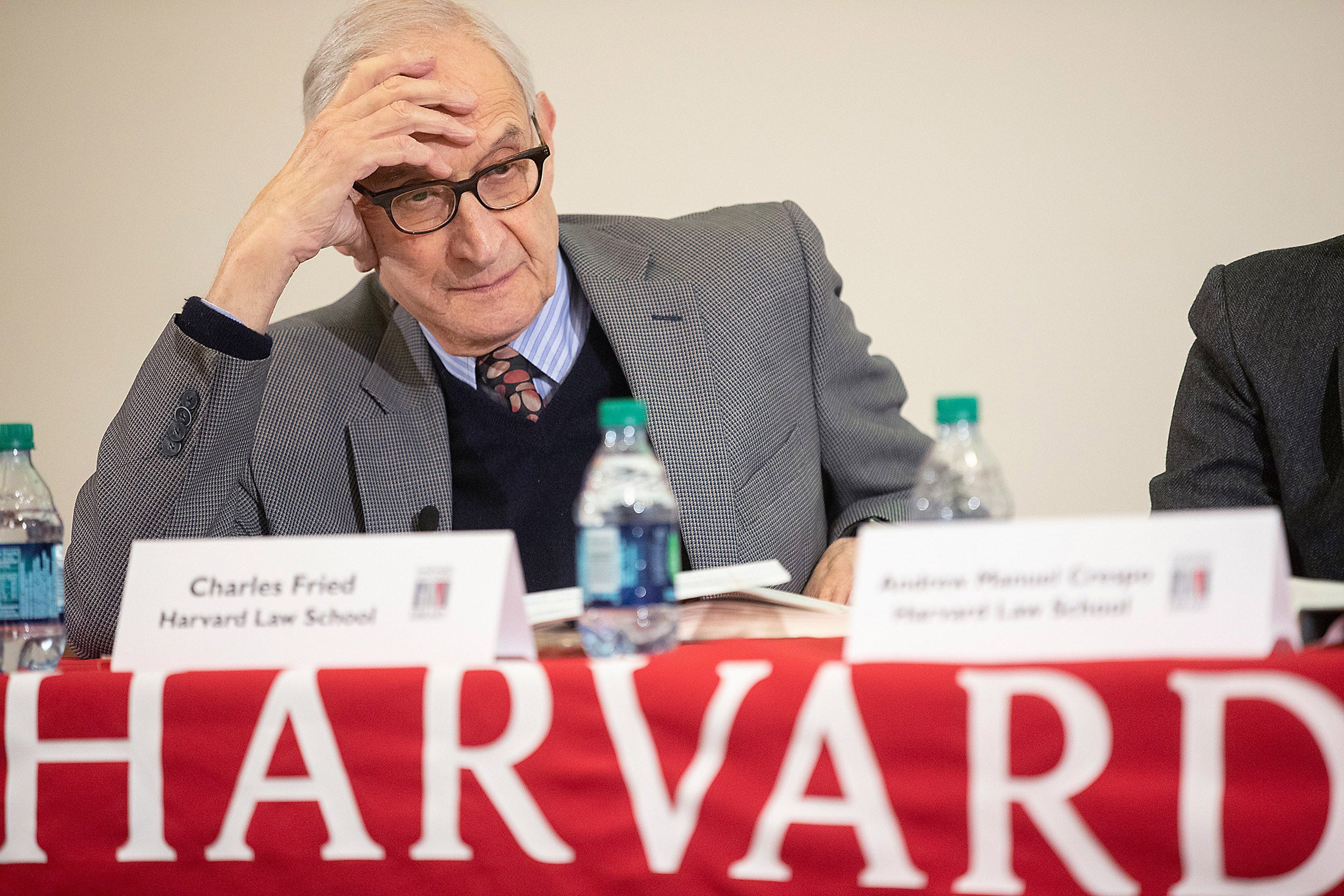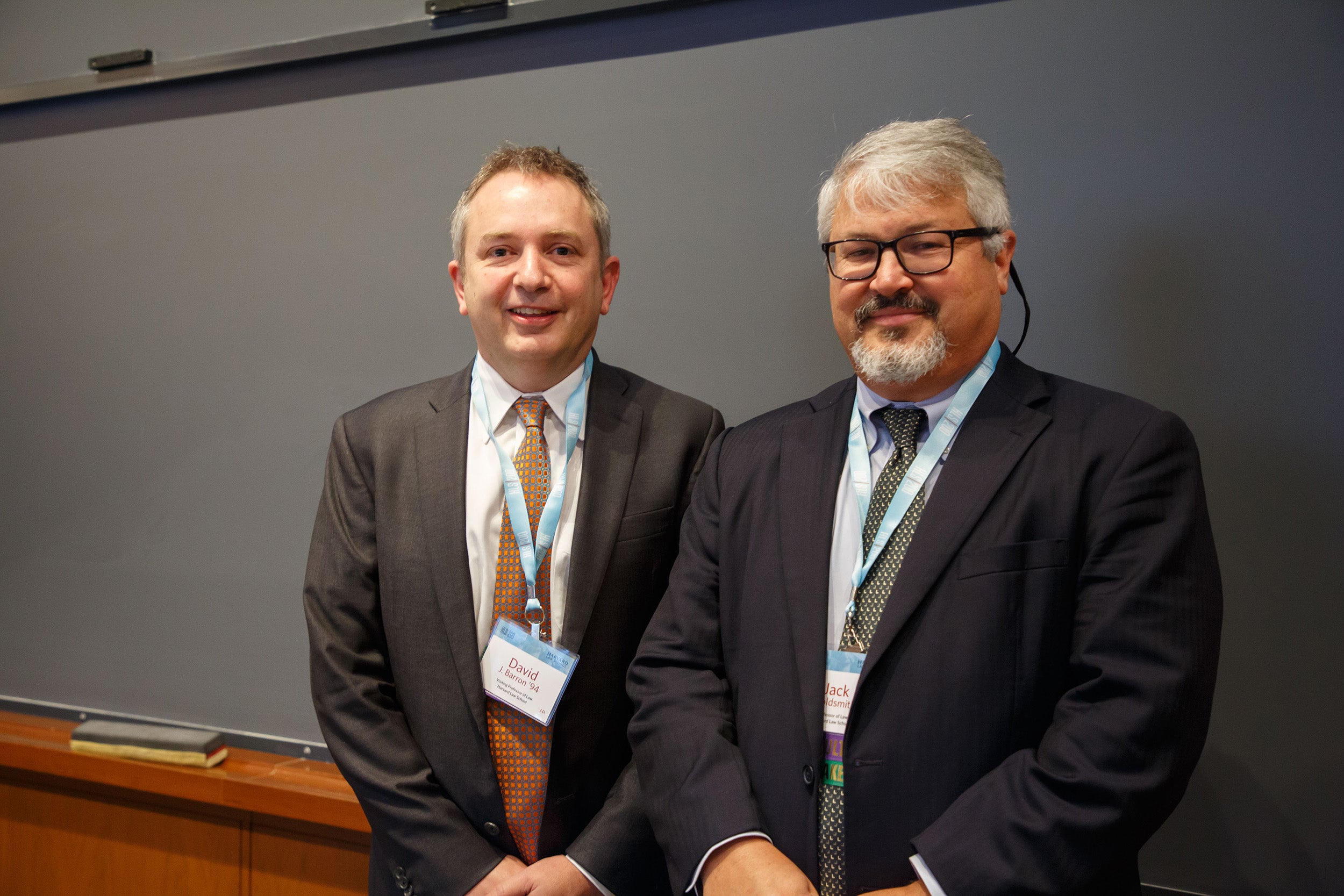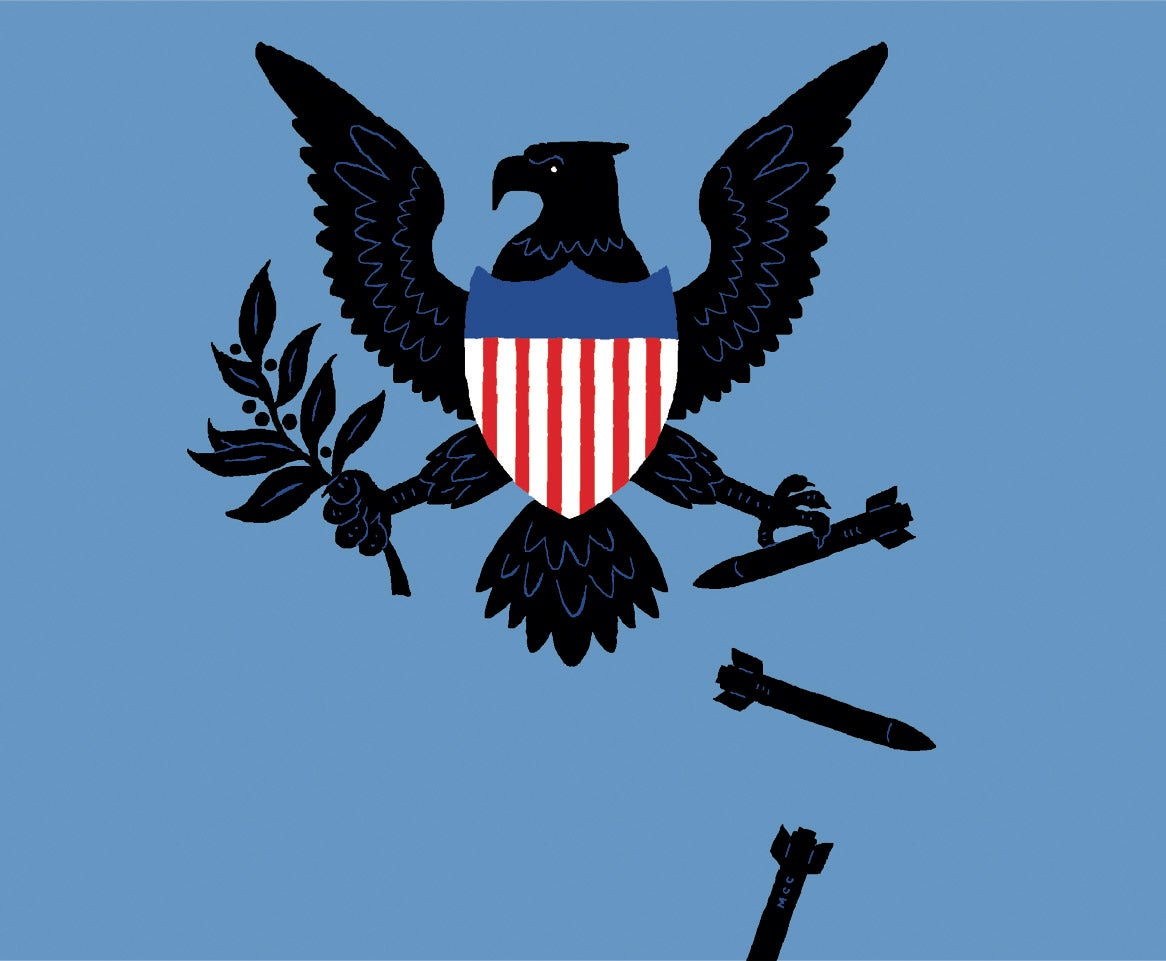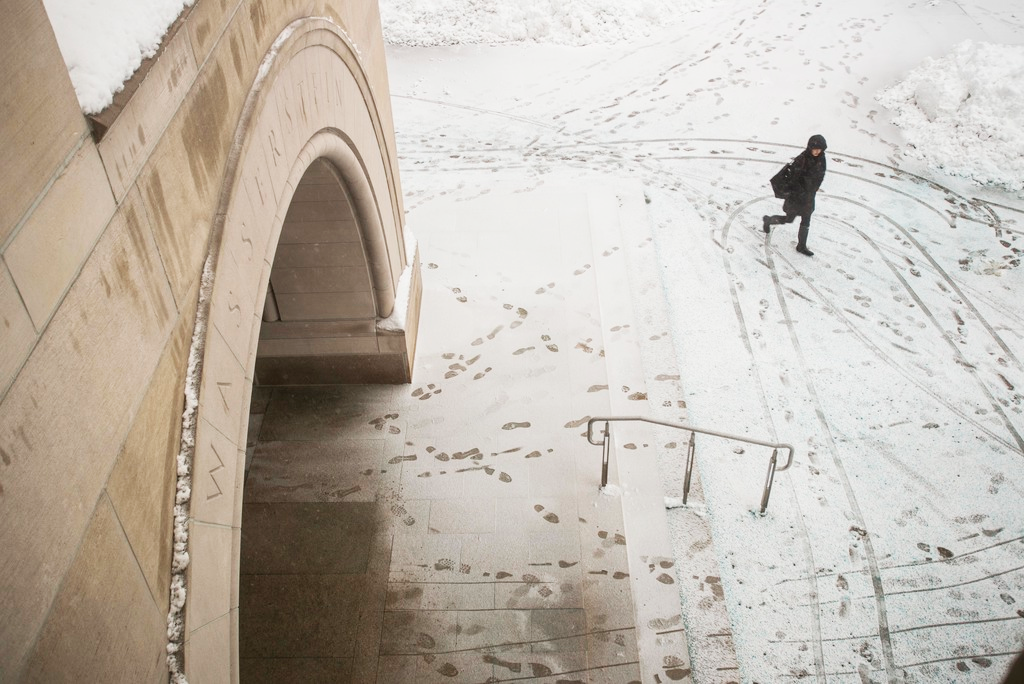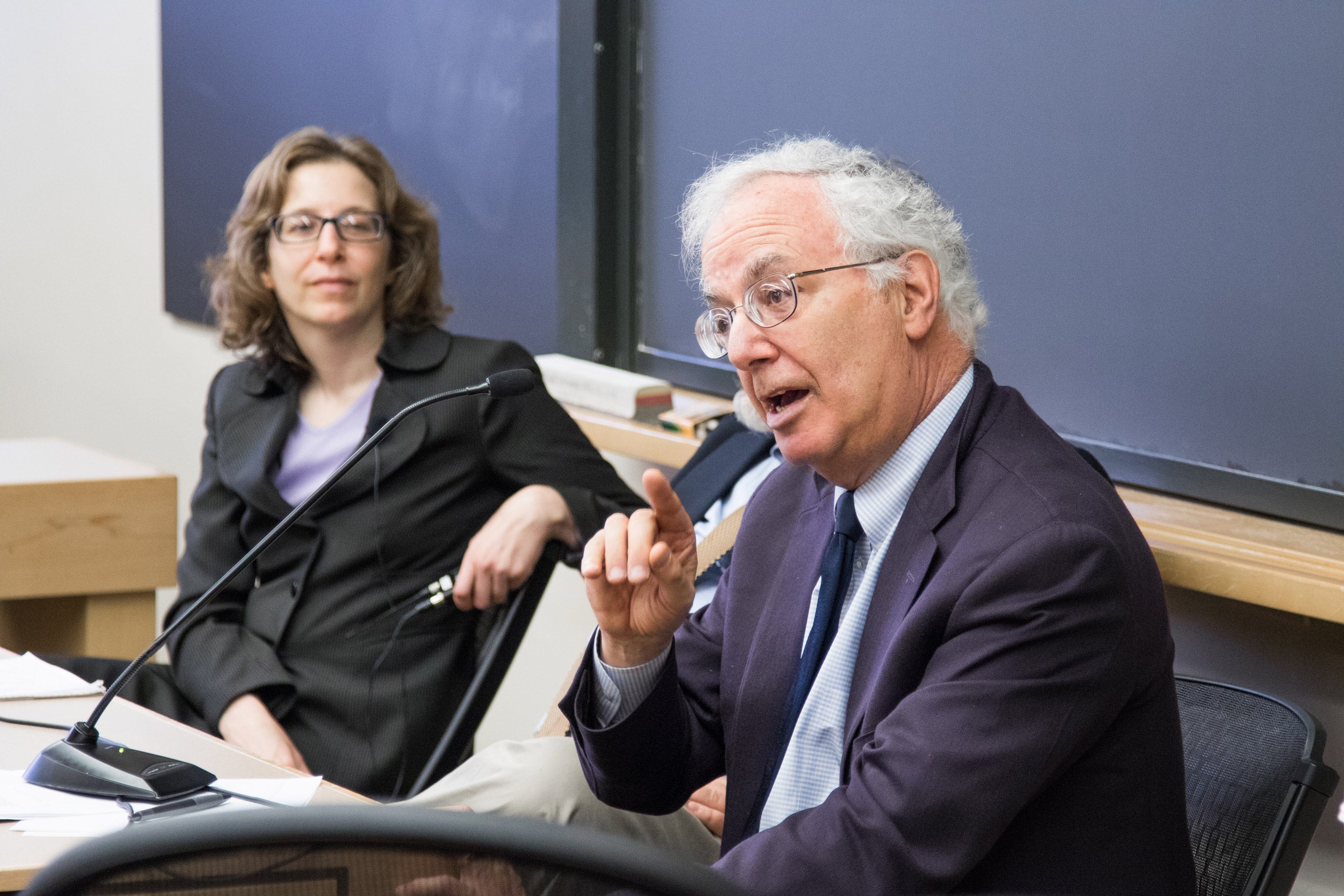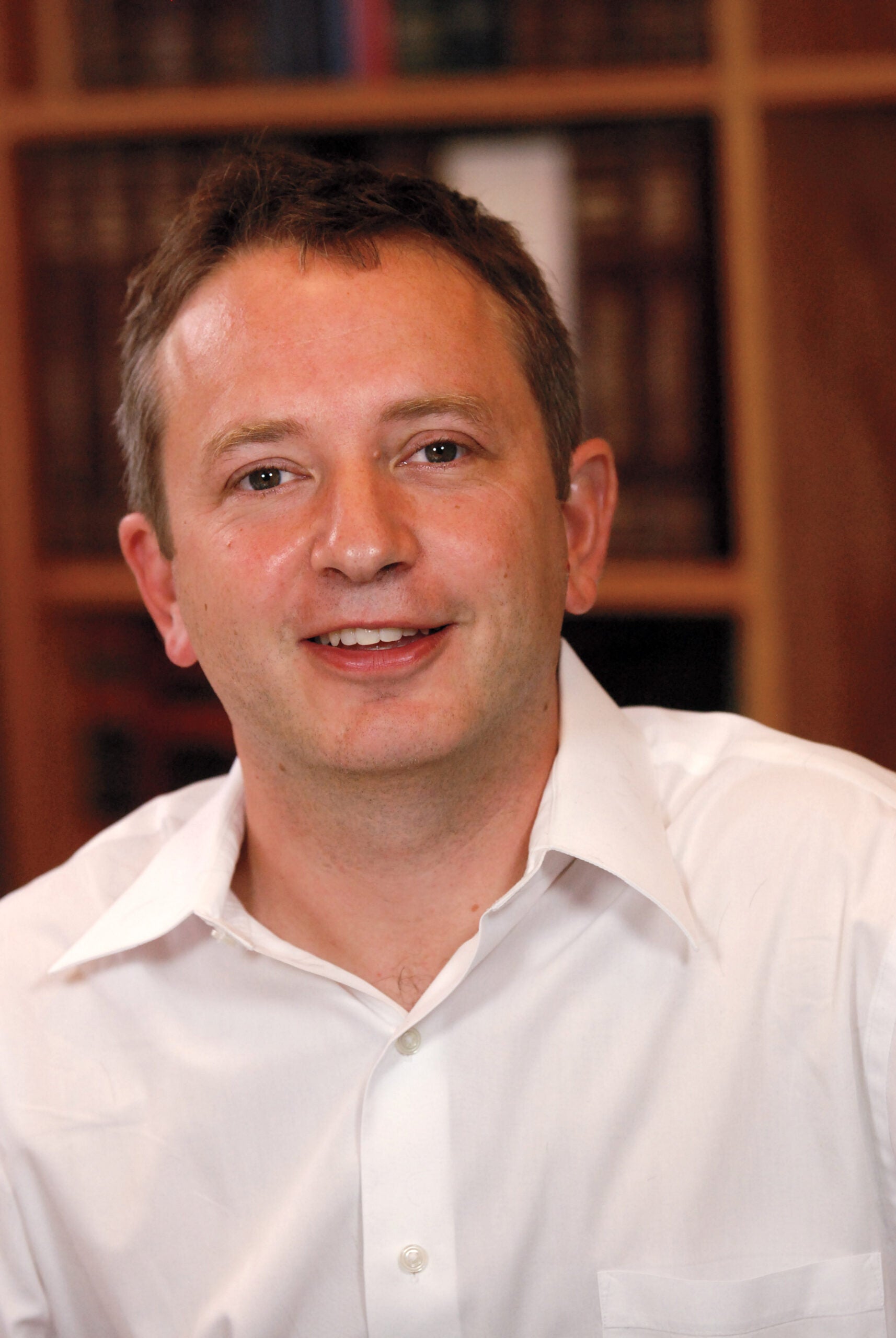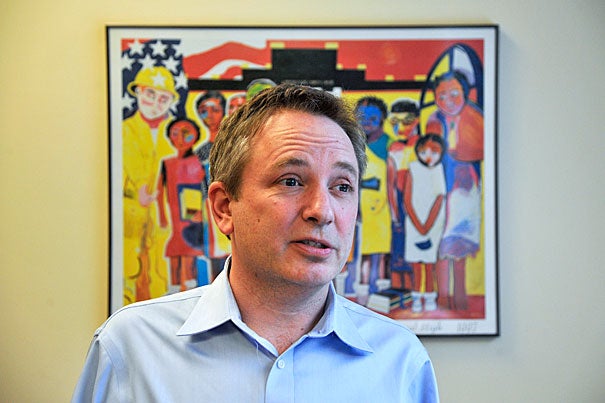People
David Barron
-
Boston had a plan to tackle evictions. The state just killed it under its tough home rule process
May 8, 2018
The housing advocates began to descend on the State House early Wednesday afternoon for one last push for the Jim Brooks Stabilization Act — a city-backed measure they say could help prevent tenant displacement amid Boston’s housing crunch. But then, as advocates prepared to hoist their banner, word began to spread: A legislative committee had just killed the proposal...The home rule process, which is meant to ensure state oversight of municipal matters involving taxes, fees, and elections, is strict in Massachusetts, relative to other states, legal experts say. A Harvard University law researcher described in a 2004 report how a home rule petition can halt a minor municipal plan, such as to regulate dog fees. “We need a new way of thinking about home rule, one that would empower cities and towns to work together to solve regional problems, not just go to the state with hat in hand — or dig in their heels against changes they have little power to control,” wrote David J. Barron, the Harvard Law School researcher, who is now a federal appeals court judge in Boston.
-
The challenge of counseling the commander in chief
November 3, 2017
A discussion about “The Office of Legal Counsel and the Challenge of Legal Advice to the President” shed light on the often-mysterious workings of the OLC—the body discussants David Barron ’94 and Harvard Law Professor Jack Goldsmith served on, during Barack Obama’s first term, and, in George W. Bush’s second, respectively.
-
War Powers: A (Judicial) Review
August 2, 2017
The post-9/11 war on terror was only 3 years old when David Barron ’94 began researching whether presidents enjoy as much unfettered power to conduct wars as was assumed by many at the time. A dozen years after he began, Barron, now a judge on the U.S. Court of Appeals for the 1st Circuit and a visiting professor at HLS, has published the results of his research in a book titled “Waging War: The Clash Between Presidents and Congress 1776 to ISIS” (Simon & Schuster).
-
Federal Judge Wins $5,000 Prize for Book ‘Waging War’
February 14, 2017
Federal judge David J. Barron also has a nice literary career. Barron is this year's winner of the William E. Colby Award, a $5,000 honor given for a fiction or nonfiction book about the military, intelligence operations or foreign policy. Barron, a judge for the First Circuit Court of Appeals, was cited for "Waging War: The Clash Between Presidents and Congress, 1776 to ISIS." The Colby prize is named for the late CIA director and is presented by Norwich University in Northfield, Vermont.
-
Harvard Law School: 2016 in review
December 22, 2016
A look back at 2016, highlights of the people who visited, events that took place and everyday life at Harvard Law School.
-
Presidential power in an era of polarized conflict
April 21, 2016
On April 1, Harvard Law School hosted a conference on 'Presidential Power in an Era of Polarized Conflict,' a daylong gathering in which experts from both sides of the aisle debated the president’s power in foreign and domestic affairs, and in issues of enforcement or non-enforcement.
-
Harvard Law School Professor David J. Barron '94, an expert in administrative law and the separation of powers, has been confirmed by the U.S. Senate to the United States Court of Appeals for the First Circuit.
-
Barron Confirmation Remains Uncertain
May 14, 2014
The Senate confirmation process of Harvard Law School professor David J. Barron ’89 continues to provoke controversy as a vocal group of senators from both the left and right call for the public release of memos, which Barron allegedly wrote during his time as a lawyer for the Justice Department. Those memos established the legal justification for the Obama administration’s controversial drone policy.
-
Harvard law professor David Barron is under fire for signing memos that allowed the U.S. to kill a U.S. citizen overseas in a drone strike. Those blocking his nomination want the documents released.
-
The Obama administration is facing a liberal revolt in the Senate over two high-priority judicial nominations, potentially jeopardizing its push to shape the federal judiciary in advance of the midterm congressional election…As that fight plays out, prominent senators from both parties, backed by the American Civil Liberties Union, are trying to block, or at least delay, a planned vote on Harvard law professor David Barron, whom Obama has nominated to be a judge on the 1st Circuit Court of Appeals, which hears cases from New England. As a Justice Department lawyer, Barron wrote at least one memo that provided the legal justification for the targeted killing of Anwar Awlaki, a U.S. citizen who was slain by a drone strike in Yemen in 2011. The fight over Barron has made complicated alliances. Sen. Rand Paul (R-Ky.) and Democratic Sens. Mark Udall of Colorado and Ron Wyden of Oregon have joined the ACLU in saying all of Barron's memos on drones must be made public or at least made available to senators before any vote.
-
The Lawyer Behind the Drone Policy
May 8, 2014
When the White House nominated David Barron to be a judge on the United States Court of Appeals for the First Circuit, based in Boston, it expected the usual Republican opposition. Mr. Barron, a Harvard law professor, is known as a liberal who was pointedly critical of President George W. Bush’s national security policy. What it didn’t expect — but should have — was that Democrats would have some problems with the nominee, too. Mr. Barron served as a top official in the Justice Department’s Office of Legal Counsel under President Obama, and he wrote several memos justifying the use of drones to kill an American citizen affiliated with Al Qaeda. The citizen, Anwar al-Awlaki, died in a C.I.A. drone strike in Yemen in 2011.
-
White House offers to show senators drone memo
May 7, 2014
Hoping to head off another confirmation battle, the White House said Tuesday that it will allow senators to review a secret paper justifying the drone strike on an American citizen written by one of President Barack Obama’s appellate court nominees.The White House is hoping the memo’s disclosure will lead to confirmation of David Barron for the 1st U.S. Circuit Court of Appeals in Boston. Barron is a Harvard Law professor who had worked as acting assistant attorney general at the Justice Department on the case of Anwar al-Awlaki, the American-born al-Qaida leader killed by a U.S. drone in 2011.
-
President Obama’s choice for a powerful appeals court appointment is in peril from both the left and the right, highlighting how the fraught politics of an election year are threatening the president’s agenda even among his allies on Capitol Hill. The nomination of David Barron, who was a Justice Department lawyer at the start of the administration and is now a Harvard Law School professor, is mired in a maw of contentious issues. Republicans object to what they say are his radically liberal views on the Constitution. Democrats in conservative-leaning states, especially those who are up for re-election, are wary that a vote for him might backfire with voters at home. And members of both parties say they are disturbed by Mr. Barron’s authorship of legal memos that justified the United States’ killing of an American citizen overseas with a drone.
-
Senator Rand Paul may block selection of judge
May 6, 2014
An influential US senator from Kentucky has threatened to derail President Obama’s nomination of a Harvard Law School professor to fill a rare vacancy on the federal Appeals Court in Boston, the court that helps establish the region’s legal climate. US Senator Rand Paul said in a letter to Senate leadership that he will block the confirmation of David Barron to a seat on the US Court of Appeals for the First Circuit until the White House releases controversial memos Barron drafted that justified the US military’s unchecked killing of American citizens overseas…Barron is married to former Boston Globe editorial columnist Juliette Kayyem, a Democratic candidate for governor of Massachusetts. His nomination was supported by lifelong Republican John F. Manning, a colleague at Harvard Law, and Charles Fried, also a Harvard professor and solicitor general to President Reagan.
-
David Barron: a Q&A on electronic communications policies
February 28, 2014
Last year, Harvard President Drew Faust asked Harvard Law School Professor David Barron ’94 to lead a 14-member task force that would make forward-looking recommendations regarding Harvard’s policies on electronic communications. Barron, who was acting assistant attorney general for the Office of Legal Counsel in the U.S. Department of Justice from 2009 to 2010, discussed the task force’s recently-released report and proposed policy with the Harvard Gazette.
-
Barron nominated to U.S. Appeals Court
September 26, 2013
Harvard Law School Professor David J. Barron '94, an expert in administrative law and the separation of powers, was nominated to the United States Court of Appeals for the First Circuit by President Barack Obama '91 on Tuesday.
-
The HLS/HKS Connection
July 1, 2013
The HLS/HKS joint-degree program are where law and public policy meet.
-
Lawyers as Advisers
July 1, 2013
Since the first meeting of the seminar taught by David Barron ’94 of Harvard Law School and Archon Fung of Harvard Kennedy School, students had been using case studies co-authored by the two professors that put them in the situation room with advisers on real-world problems at the intersection of law and policy. But during a session of Public Problems Advice, Strategy and Analysis in November a player in the case they were discussing sat at the table with them: Josh Stein. J.D. /M.P.P. ’95, North Carolina state senator and Democratic minority whip, who had first-hand experience with an innovative but contentious piece of legislation: The North Carolina Justice Act.

